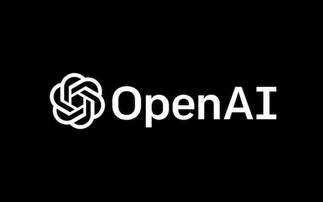
Despite controversies swirling around artificial intelligence -- fears that it will take jobs, concerns over it perpetuating misinformation, and increasing legal entanglements like those involving copyright infringement -- evidence shows that businesses are adopting or are considering adopting AI right now.
In MES Computing's survey of 75 U.S. IT leaders about some of the top trends in IT and business leadership, 33 percent said they were already using GenAI in their organizations, 29 percent reported "looking into it," and 19 percent were in the process of creating proofs-of-concept.
[Related: GenAI At Work: Sifting Hype From Real Business Use Cases]
Respondents who are using GenAI already are overwhelmingly using ChatGPT – 51 percent.
But is ChatGPT the ideal platform for business use? Is it better for some organizations to build their own LLMs? Which businesses processes are best served by AI? There are several considerations for IT leaders to contemplate before integrating GenAI.
Consider AI's Use Case In Your Organization
The first consideration for any organization is to pinpoint which business processes make for a solid use case for AI.
Aman Raghuvanshi is the CEO and co-founder of Pyq (pronounced "peak") – an AI company that helps companies push less paper manually like filling out forms, reading invoices, updating accounting software, and other repetitive tasks.
A software engineer with years of experience in the AI space, Raghuvanshi said that based on use case, organizations contemplating AI should know which tasks require "accuracy, explainability and privacy," whether considering generative, predictive or discriminative AI. Knowing so can guide you in the direction you should take when looking into AI.
[Related: 'Microsoft Copilot is a gimmick', says top CIO]
"There is a lot of low-hanging fruit in terms of problems that you can solve in your business where you don't need a high degree of accuracy, or explainability," he said and cited the example of writing marketing copy as a good use of OpenAI's ChatGPT.
"You can sign up for 20 bucks a month and you're alright. On the other hand, there are much higher value use cases which are usually done by humans for good reason because humans have a certain level of intelligence in contexts that you need, that a ready-made model may not be able to provide," he said.
For example, there are tasks where more accuracy is crucial like reviewing loan applications at a bank, he said. Giving that task to an AI model means not knowing exactly why it made a decision about a loan, Raghuvanshi explained.
That scenario also highlights the need to consider explainability – and something that organizations who have regulatory compliances to follow, really need to think about.
"Explainability is usually required when you're making decisions … or you're automating a process, which is either regulated by the government or by some industry body," Raghuvanshi said.
He said as a general rule of thumb, if a task involves just one person making a decision, that task may be a good candidate for AI.
"It's not good for making investment decisions in startups, for instance, but it can very easily pull information from a document and put it into a form," he said.
He cited the example of the loan application. "Why did you approve or disapprove someone's home loan application is a common situation where you need a person to explain it," he said. "The government want you to be able to justify why." Banks currently use statistical models which are interpretable in ways that generative AI models aren't, he said.
To Build Or Not To Build Your Own LLM?
There are a lot of videos and documents on sites like GitHub about building your own LLM. But is that a feasible option for a business?
Raghuvanshi said you have to look at your business' accuracy and privacy requirements.
For more complex business tasks where "you have more than one person having eyes on a problem" then you should start thinking about fine-tuning your own model, he said. By that, he means retraining an existing model or using RAG (retrieval augmented generation) to customize the model.
When you retrain a model, you know what training data went into it, Raghuvanshi said. "You're able to control the model for hallucinations and factual inaccuracies in your specific use case."
[Related: 5 Epic 'Big Tech'-GenAI Collaborations In 2024 (So Far)]
This doesn't mean building an LLM from scratch. Unless you are Amazon, most businesses simply do not have the budget or access to the computing power to train an LLM. But there are open-source LLMs that can be customized and even "in-the-box" GenAI like OpenAI offers business subscriptions – but Raghuvanshi cautions there may be data privacy concerns with using ready-made solutions.
The most realistic path to AI adoption for most organizations will be to integrate third-party AI solutions that fit a specific business need. For example, Raghuvanshi's company Pyq offers a GenAI solution to eliminate mundane, repetitive paperwork.
"There are [AI] companies that do things like debug your code, or if you're looking at a new contract, they will help you do compliance," he said.
"Even today, if you're building a business, or even if you're running a big business, if you wanted to accept a payment you don't build your own payment processor, you use Stripe," he said.
There are many AI options now, especially in the startup world, that have a solution for a specific business function. IT leaders just need to identify which processes are best suited for AI and which require mission-critical levels of accuracy and privacy.


















